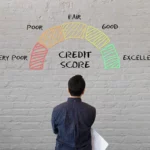If you live in America, there’s a good chance you have some debt. Whether you have a few credit cards or several student loans, it’s hard to escape the world of debt. However, debt consolidation loans may be way you can better manage your debt.
Not every debt consolidation loan is the same, though. Before you decide to apply for one, review this comprehensive guide to finding reputable debt consolidation loans.
What Is Debt Consolidation?
Debt consolidation is when you take your multiple debt obligations and combine them into one payment. Basically, you “consolidate” multiple payments into one big payment. There are a few ways you can do this, like:
- 401(k) loans
- Debt consolidation loans
- Home equity loans
- Credit cards
While each of these may have their own benefits and disadvantages, certain approaches are better than others. For example, you won’t have a credit check with a 401(k) loan, but there may be other penalties associated with it. Home equity loans, on the other hand, require good credit but may not have the same penalties as loans against a retirement account.
How Does Debt Consolidation Work?
If you take out a debt consolidation loan, it’s pretty simple. You’ll receive your loan proceeds, then pay off your other outstanding debts with it. This may include things like credit cards, personal loans, and even medical debt.
When Is Debt Consolidation a Bad Idea?
It’s not a good idea to consolidate your debt if you already have low-interest rates and relatively little debt. You also shouldn’t apply for debt consolidation loans if you have poor credit.
Ultimately, you want to either reduce your interest rate or lower your monthly payments. If you have a lower credit score, you’ll likely have higher interest rates and payments.
When Is Debt Consolidation a Good Idea?
When you have good credit and a plan for staying out of debt, you should consider debt consolidation loans. With good credit, you may receive lower interest rates that could reduce your total cost.
In general, if your debt doesn’t exceed 40% of your income, you’re in a great position to apply for debt consolidation loans that may offer more favorable terms.
Frequently Asked Questions About Debt Consolidation Loans
If you have a lot of debt, there’s a good chance you’ve already thought about debt consolidation loans. Review some of the most commonly asked questions about these loans before you apply.
How Can I Consolidate My Debt?
Since you’ll be applying for credit to consolidate your debt, it’s a good idea to start by checking your own credit report and credit score. This can give you an idea of what rates you’ll qualify for.
Once you know where your credit stands, review several different debt consolidation options. This will help you determine if a loan is the right option for you.
Should I Consider a Debt Consolidation Loan?
While every financial situation is different, debt consolidation loans are something you should consider if you have good credit and a manageable amount of debt.
Before you apply though, you should also have a plan for staying out of debt. Once you’re out of debt, you can still use your credit when it makes financial sense.
Should I Consider a Secured Debt Consolidation Loan?
A secured loan means you are pledging something of value as an assurance that your loan will be repaid according to the agreed terms and conditions. Assets such as cars can be used as collateral, and, in some instances, the lender can place a lien on the asset, which will remain until the loan has been paid in full, including interest and all applicable fees.
It’s important to remember that if you are unable to repay a secured loan, the lender may be able to sell the pledged collateral to pay off all or part of the loan.
Will Consolidating Credit Card Balances Hurt My Credit Score?
The truth is that credit scores are complicated. There are several different scoring models and each person’s credit profile is unique. This means it’s hard to know exactly what will happen.
In general, though, credit inquiries will have some impact on your credit score. You also may see an impact on other aspects like your high balances and total credit limit.
3 Practical Tips for Finding the Best Debt Consolidation Loans
There are hundreds of options for debt consolidation loans, but the right option for you depends on different factors. You don’t want to apply for all of them though, so it’s a good idea to narrow down your options.
You can find the best debt consolidation loans with these three tips:
- Calculate your total balance: Different lenders have different loan limits, so start by calculating how much debt you need to pay off.
- Review different loan features: Beyond interest rates, consider things like your total cost of the loan and any prepayment penalties you might incur.
- Read reviews and testimonials: You can learn a lot about a lender by reading reviews and testimonials from other customers.
3 Way to Consolidate Debt with a Low Credit Score
- Check your credit report to identify items such as wrong accounts or incorrectly reported missed payments
- Add a co-signer
- Improve your debt-to-income ratio by paying off small debts and find ways to increase your income
While it can seem overwhelming in the beginning, these simple tips may make the process of narrowing down your options a little bit easier.
Looking for the right debt consolidation loan? Mariner Finance may be able to assist you with the funds you need to help manage your debt.











